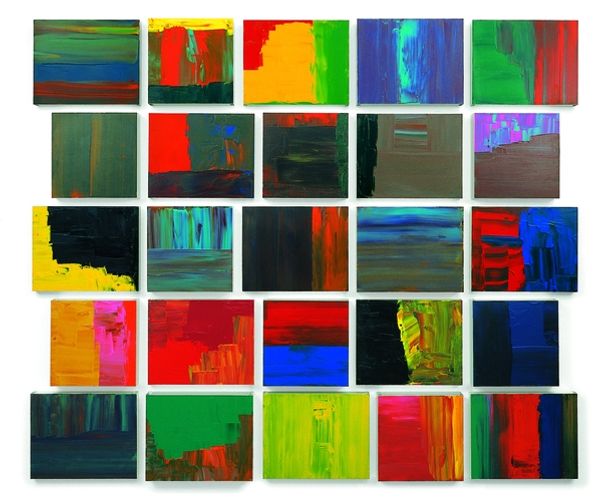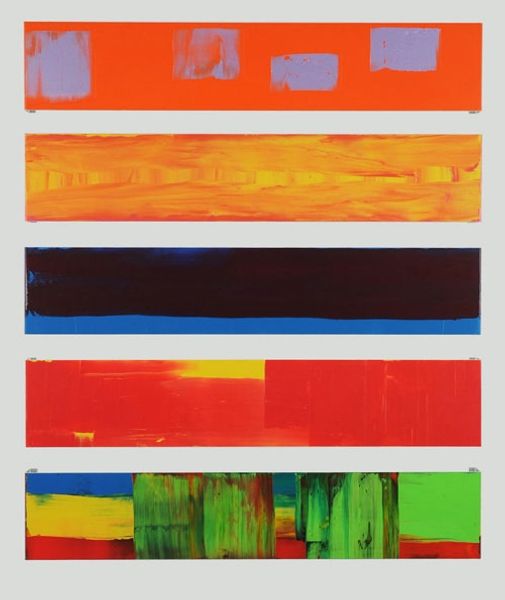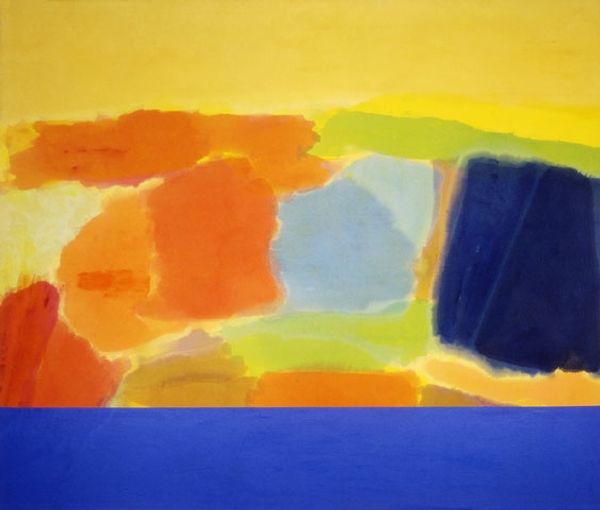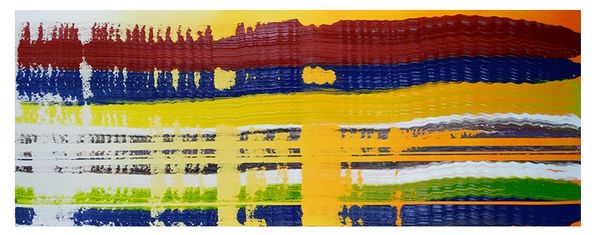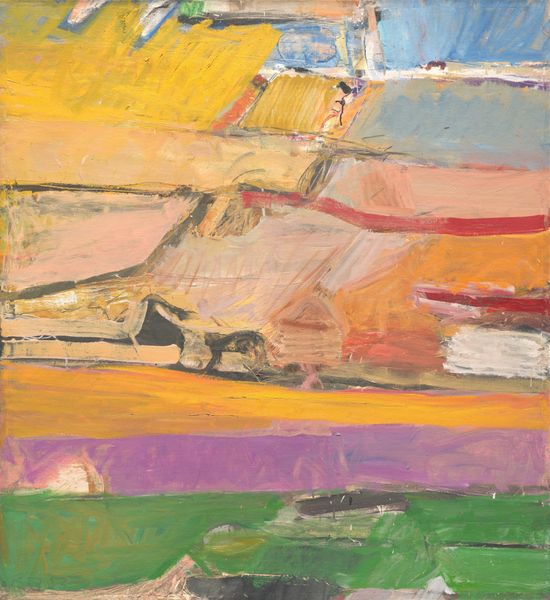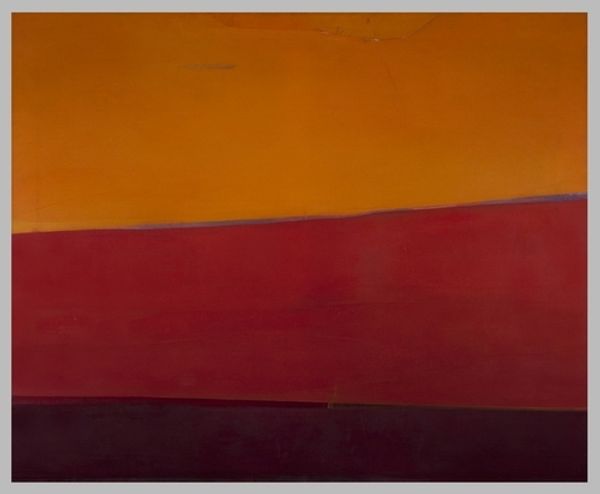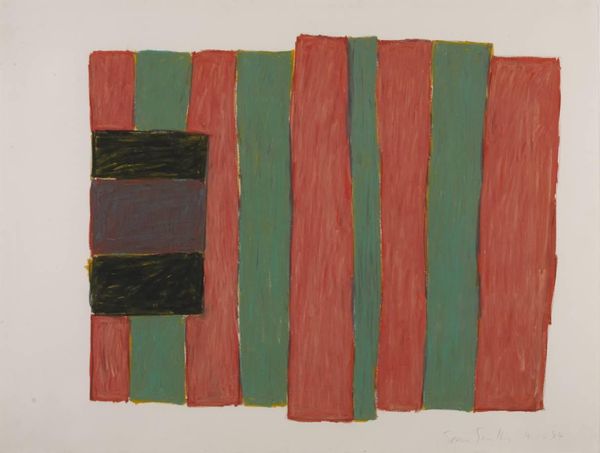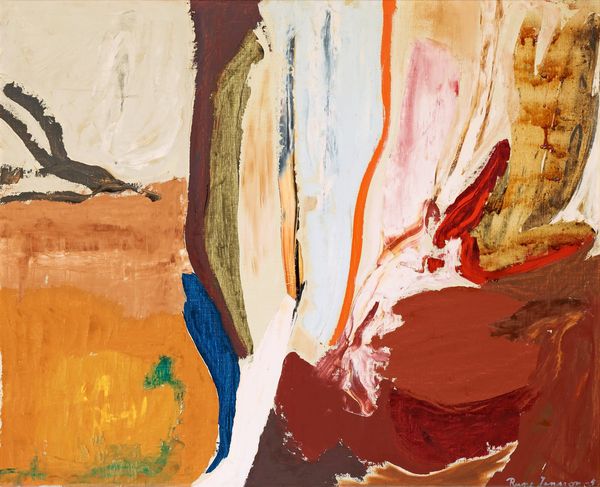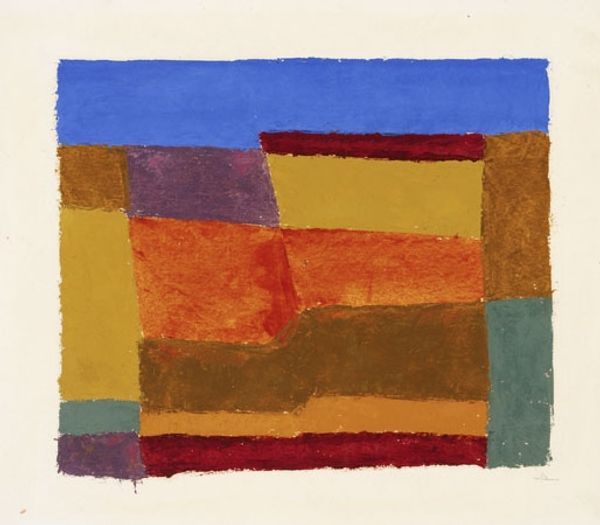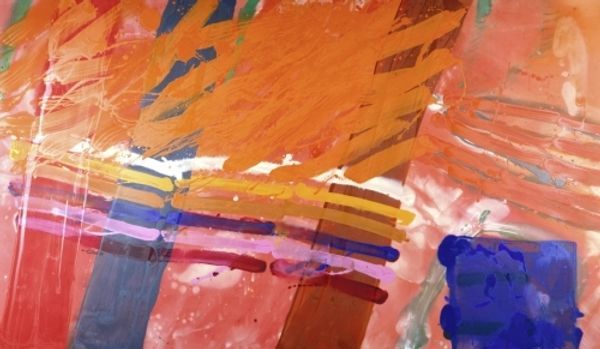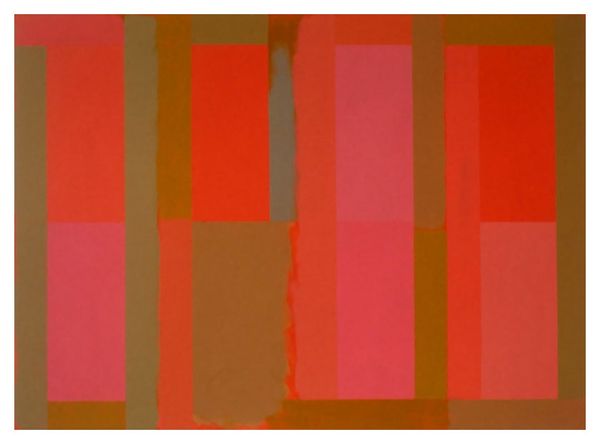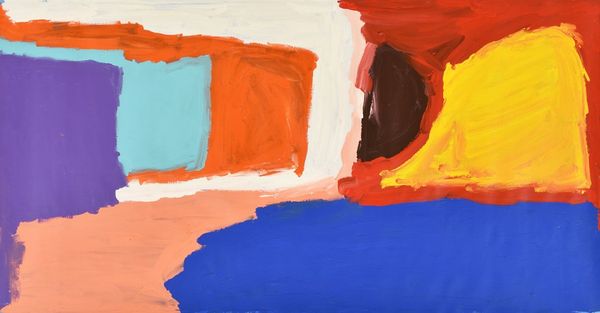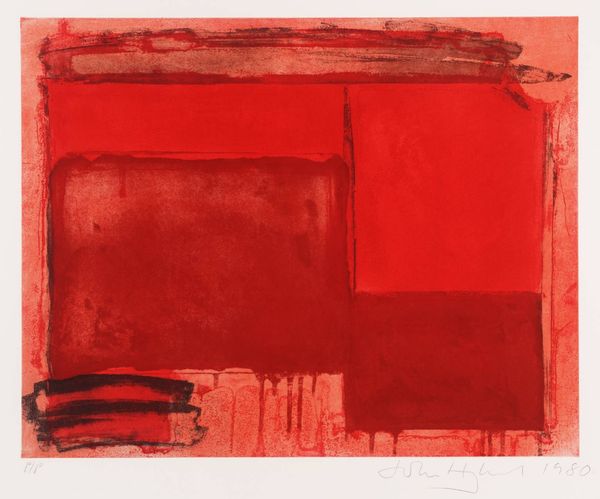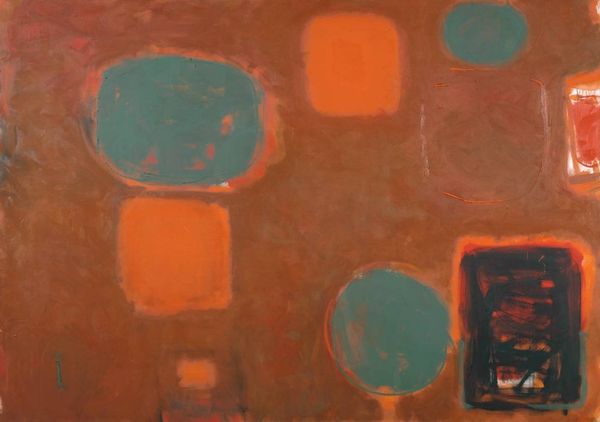
Copyright: Pedro Calapez,Fair Use
Curator: Pedro Calapez created "Janela Aberta" in 1998, employing a mixed-media approach with acrylic paint, showcasing his exploration of abstract expressionism. It’s quite striking, isn’t it? Editor: It definitely has an intriguing grid-like structure, almost like multiple windows offering fragmented glimpses. There's something about the warm, earthy tones that feels both comforting and slightly unsettling. Is it intended to evoke domestic interiors? Curator: It's interesting you see windows, as the title translates to “Open Window.” From a social perspective, windows can act as both barriers and portals to the outside world. Consider, for instance, who is afforded the privilege of looking out and who is confined by them. Are these barriers or openings? Editor: The variety in the geometric forms does feel like a symbolic alphabet of architectural fragments. There are recurring rectangles, some filled with solid color, others hinting at interior scenes or perhaps landscapes, the archetypes that come to mind remind of Rothko. Could this interplay symbolize differing cultural or societal perspectives filtered through architecture? Curator: It is plausible. Calapez worked at a time of great changes, after Portuguese democracy was starting. His art could be mirroring the challenges faced by previously colonized nations negotiating new identities. This invites us to consider not only what is depicted, but what is excluded, echoing postcolonial themes of fragmented narratives. Editor: That resonates strongly. It's like memory itself fragmented, reformed, echoing ideas of displacement. The open window doesn't reveal a singular landscape, but rather a chorus of shifting possibilities, both real and imagined. It certainly seems like a commentary on the transient, shifting narratives that shape us, even now. Curator: It highlights how seemingly abstract forms are always already imbued with meaning that reflect our social realities. "Janela Aberta" serves as a reminder that art never exists in a vacuum. Editor: Indeed, it allows us to project and contemplate both the comfort and the challenge of shifting perspectives. It makes you question your own reality.
Comments
No comments
Be the first to comment and join the conversation on the ultimate creative platform.
